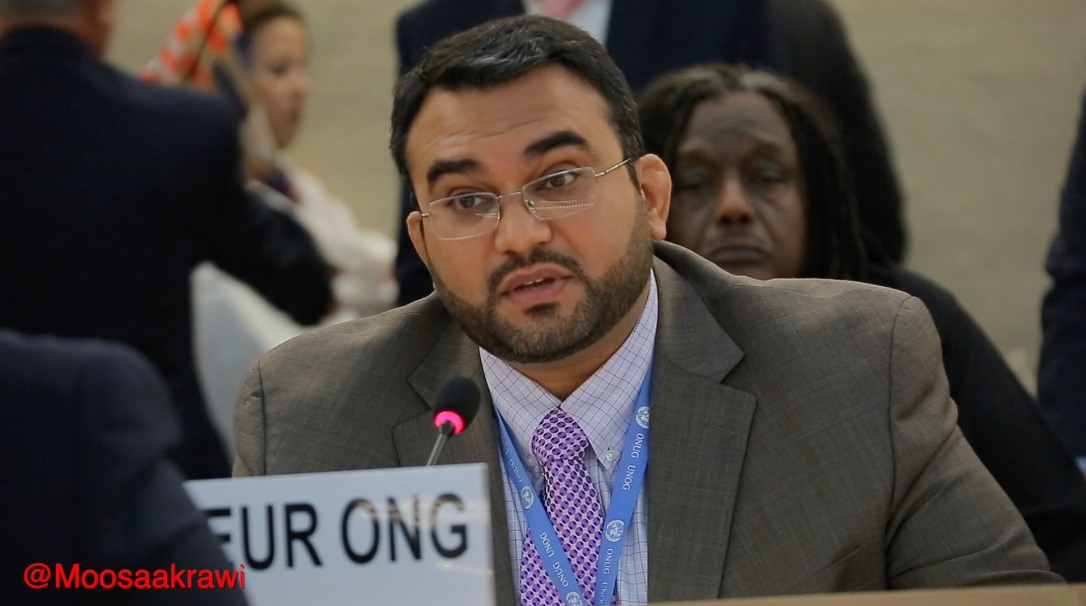On 21 September at the 36th session of the Human Rights Council, ADHRB’s Executive Director, Husain Abdulla, delivered an oral intervention during Bahrain’s 3rd Cycle UPR review. In his intervention, Abdulla highlighted how the Bahraini government has increased its repression since suppressing the 2012 pro-democracy movement, in particular the detention and abuse of human rights defenders and activists. Abdulla also questioned how, if the law applies to all Bahrainis, members of the government like Talal al-Khalifa and Nasser bin Hamad can get away with torture and human rights abuses. Please continue reading for the English text of his intervention, or click here for a PDF. For the Arabic text, please click here for PDF.
Mr. President
Americans for Democracy & Human Rights in Bahrain expresses its deep concern at the seriousness of the commitment of the Government of Bahrain to the mechanisms of the UPR. Since the outbreak of the popular movement demanding democracy, human rights and the right to self-determination in February 2011, the Government of Bahrain has pursued a systematic policy of repression and violations of human rights.
The Delegation of the Government of Bahrain has claimed that the comprehensive review mechanism is an opportunity to shed light on the Kingdom’s human rights achievements. But activists and civil society members have questions for the government concerning:
- The arrest of Nabeel Rajab and his imprisonment because of tweets;
- The arrest, torture and stripping of the dignity of activist Ebtisam al-Saegh;
- The life sentence of Abdulhadi Khawaja for his human rights work;
- The dissolution of Al-Wefaq and imprisonment of its secretary-general Sheikh Ali Salman for his political activity;
- The closure of Al-Wasat newspaper, the only independent newspaper in Bahrain;
- The withdrawal of Sheikh Isa Qassim’s nationality and placing him under house arrest;
- The life sentence of the two professors Abdulwahab Hussein and Hassan Mushaima who were calling for democracy in Bahrain.
The Bahraini government has repeatedly claimed that no one is above the law, no matter how popular and important. Do we then understand that the Bahraini government will immediately investigate former National Security Agency chief Talal al-Khalifa and the head of the Royal Guard Nasser bin Hamad al-Khalifa on the basis of serious allegations of involvement in torture of activists and human rights defenders and political opponents?
The Government of Bahrain claimed that it was cooperating with various United Nations mechanisms, in particular the Office of the High Commissioner for Human Rights and Special Procedures. Can we ask why the Government of Bahrain then rejects the requests to visit by more than five Special Rapporteurs? And why it would cancel any upcoming visit by an OHCHR team?
The Bahraini government accepted the recommendations on freedom of expression and insisted that freedom of expression is protected and guaranteed in the Bahraini constitution. Until the Government of Bahrain proves the seriousness of these commitments, is it ready to release all those who peacefully criticize the government?
Mr. President, all of the above shows us one thing: that the Government of Bahrain is not willing and is not serious about implementing the recommendations of the UPR and all that it claims is not relevant to reality or as it is said in Bahraini “it’s all hot air.”
Thank you
Photo credit: Moosa Mohammed





